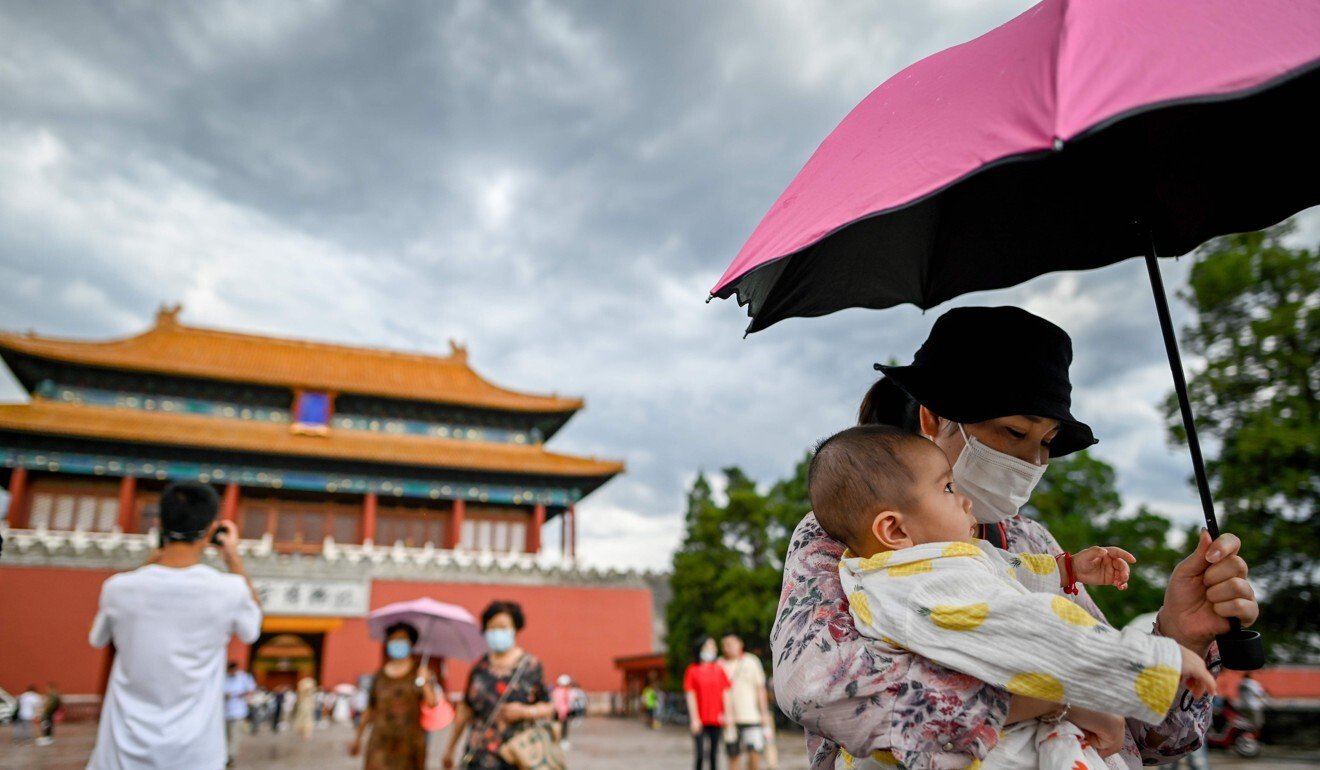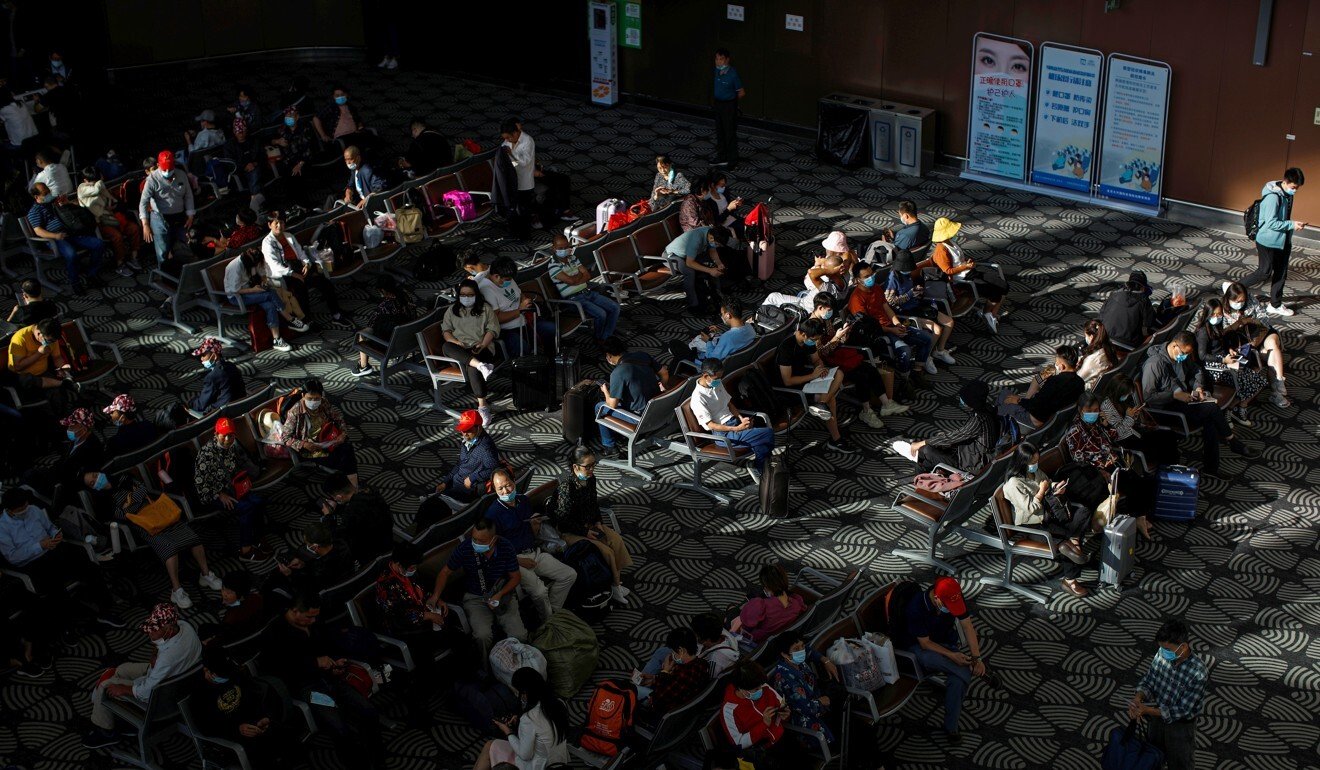
China keeps guard up with travel warning as tourist industry prepares for first post-coronavirus holiday season
- Domestic demand is expected to rebound during the so-called Golden Week and could offer a major boost to the domestic tourist and entertainment industries
- But people have been asked to avoid unnecessary trips to countries and regions still hit by the pandemic
China is keeping its guard up ahead of the biggest holiday season since it largely brought the coronavirus outbreak under control.
China has asked its 1.4 billion residents to avoid unnecessary travel abroad during the week-long national holiday starting on October 1, which will be a major test of the country’s ability to prevent a renewed outbreak of Covid-19.
Large parts of the country went into lockdown during the Lunar New Year holiday, but weak domestic consumption is expected to rebound during the so-called Golden Week, usually the peak season for tourism and entertainment industries.
But the travel advice highlights just how the long shadow cast by the pandemic is, even though China was the first major economy to return to growth after Covid-19 disrupted global commerce and travel.
Wang Quanyi, director of the Beijing Centre for Disease Prevention and Control, said yesterday in a press conference that the disease was still spreading and that China would continue to take strong measures to prevent a rebound at home and prevent imported cases.
“I would like to remind citizens and friends not to leave the country unless necessary. If you must leave the country, please pay close attention to the local epidemic prevention and control information,” Wang said.
Golden week: record number of Chinese travellers planning domestic trips
“The October 1 holiday is approaching, citizens and friends should pay attention to the outbreak information when travelling, and try to avoid travelling to countries or regions with outbreaks.”
Consumer demand in China has taken a hit from the pandemic and despite a broad recovery in exports, manufacturing and industrial production, consumption remains the weakest link.
Retail sales grew in August for the first time this year, while service consumption, which accounted for 50 per cent of household consumption, has suffered badly, according to a research note by Macquarie published on Friday.
For example, food services declined by 7 per cent in August compared with the same period last year.
Aviation has also been badly hit, and although passenger count in Shanghai Pudong Airport returned to growth in August after months of decline, overall volume was still down by 44 per cent compared to last year, Macquarie said. Beijing Capital, the country’s busiest airport, also said its passenger numbers were down by 60.6 per cent last month.

“The silver lining is, service consumption is so bad that it could only get better, unless a second wave hits China.
“Barring that, we expect service consumption to recover in the coming months. The upcoming Golden Week holiday in October could witness a long-waited travel boom,” Macquarie said.
According to a report published by the Beijing-based China Tourism Academy, 80 per cent of respondents expressed an interest to travel in the third quarter – a rise of 90 per cent compared with last year that indicates the pent-up demand after months of travel restrictions.
Chinese tourists make a splash in former coronavirus centre
“The proportion of travel agencies returning to work is close to 60 per cent, and more than 95 per cent of companies expressed confidence in the future of travel agency business,” the report said.
However, precautions remain in place and people travelling between provinces have to download a health app that shows their recent travel record.
Despite a better outlook for the second half of this year, the China Tourism Academy still forecast a decline of 43 per cent in the number of tourists this year to 3.4 billion compared with last year. Domestic tourism revenues were also expected to more than halve to 2.8 trillion yuan (US$414 billion) compared with last year.

But certain restrictions are still in place. All tickets must be sold online, while the attendance rate of each show shall not exceed 75 per cent, according to a notice released by China Film Distribution and Exhibition Association on September 15.
Health officials have also warned that Covid-19 could return this winter and have urged as many people as possible to get flu shots, particularly vulnerable groups such as the elderly and those with chronic conditions.

